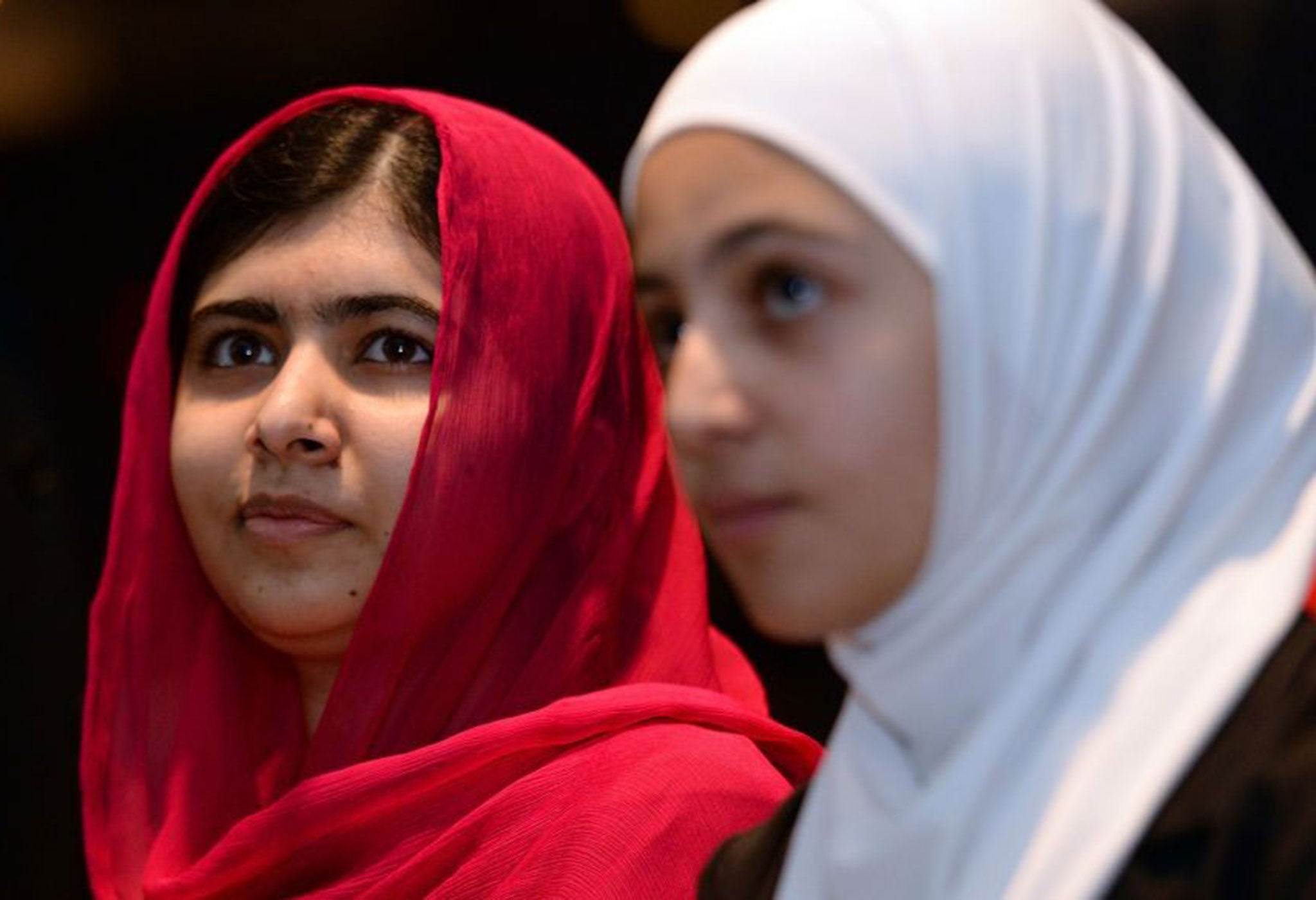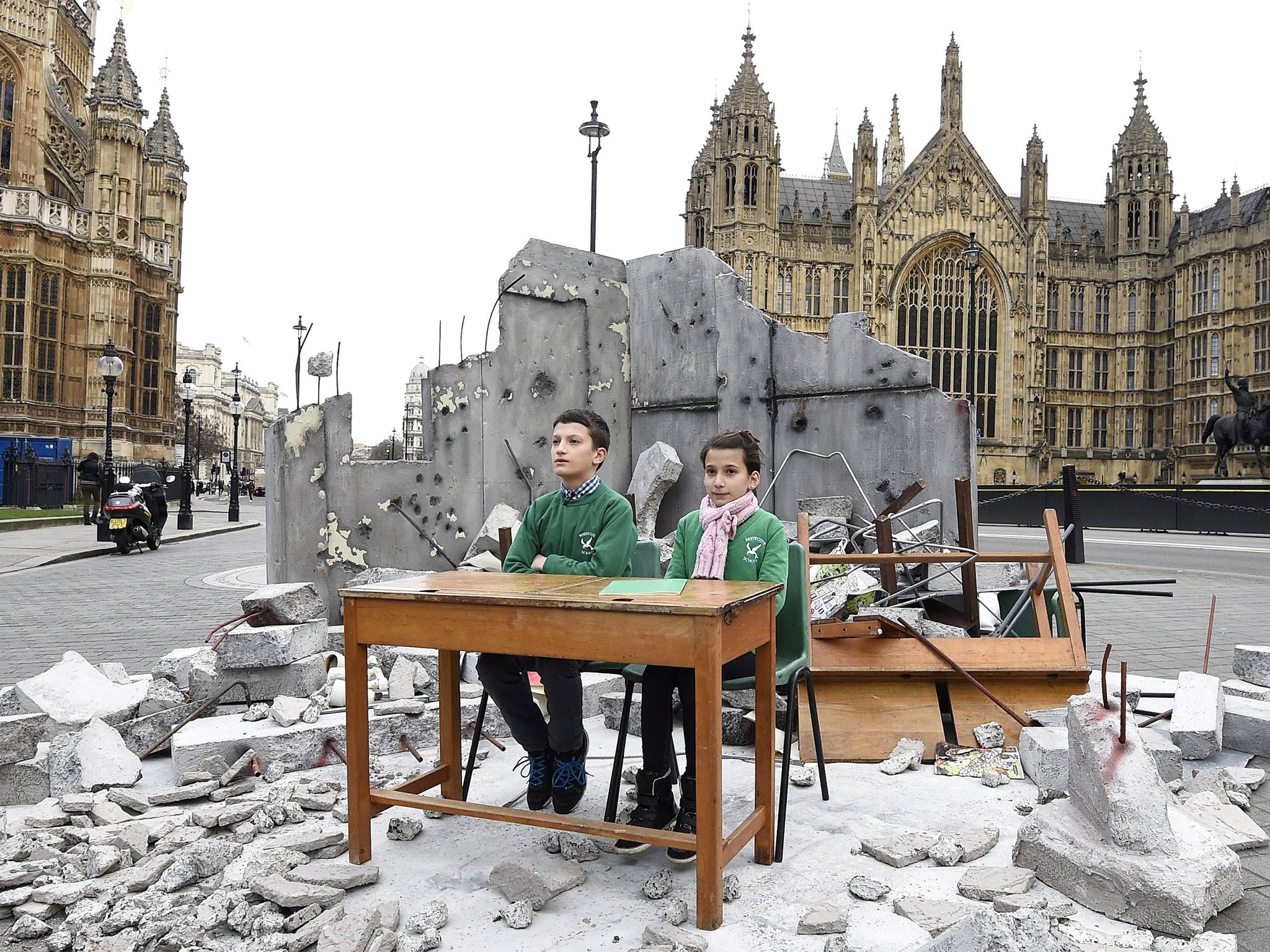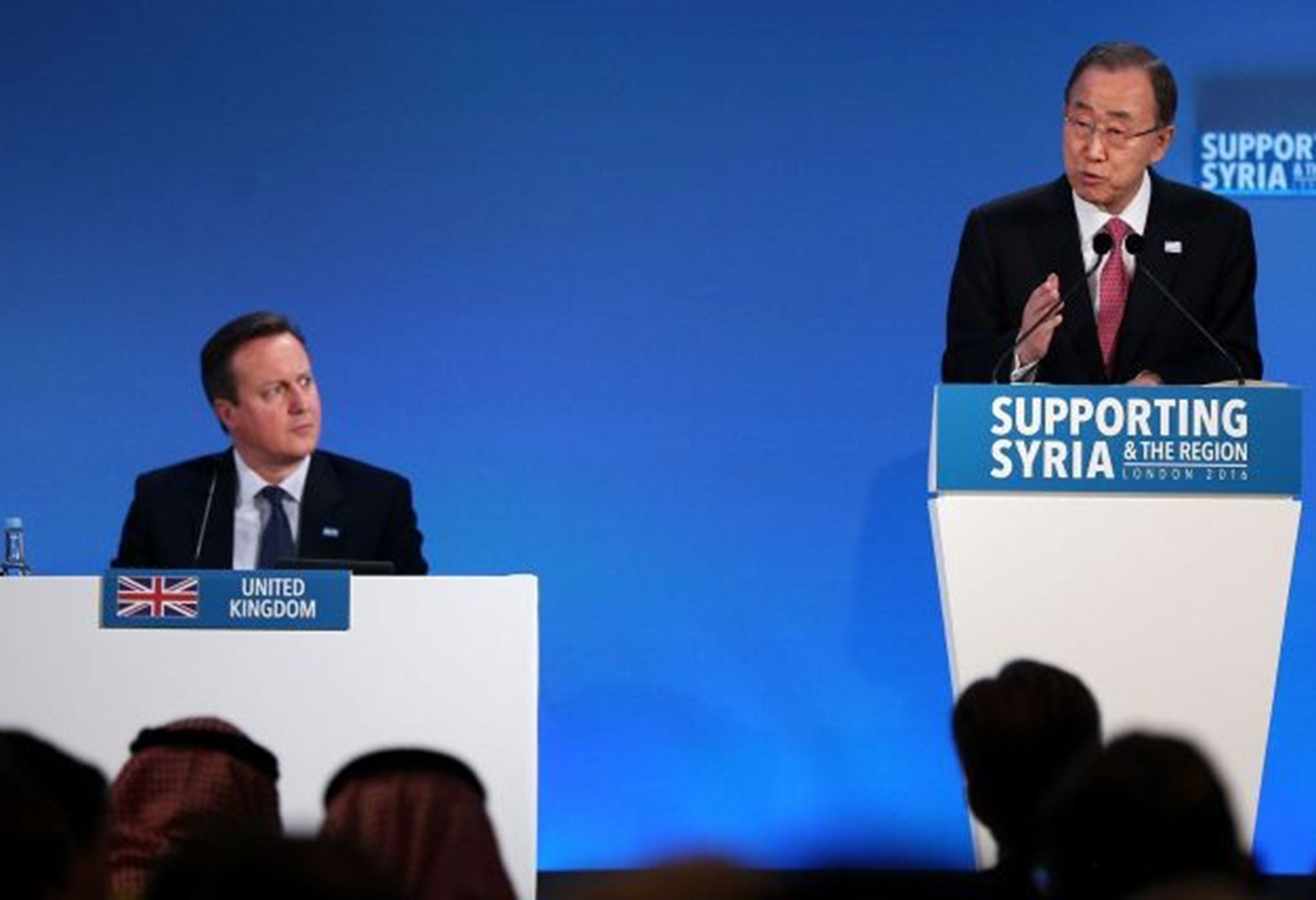Syrian refugee girl's message to world leaders: 'Give us the power to make our hopes and dreams come true'
Muzoon Almellehan is friends with Malala Yousafzai, the Pakistani education campaigner who was shot by the Taliban
Your support helps us to tell the story
From reproductive rights to climate change to Big Tech, The Independent is on the ground when the story is developing. Whether it's investigating the financials of Elon Musk's pro-Trump PAC or producing our latest documentary, 'The A Word', which shines a light on the American women fighting for reproductive rights, we know how important it is to parse out the facts from the messaging.
At such a critical moment in US history, we need reporters on the ground. Your donation allows us to keep sending journalists to speak to both sides of the story.
The Independent is trusted by Americans across the entire political spectrum. And unlike many other quality news outlets, we choose not to lock Americans out of our reporting and analysis with paywalls. We believe quality journalism should be available to everyone, paid for by those who can afford it.
Your support makes all the difference.A teenage girl who was among the first Syrian refugees brought to the UK has launched an impassioned plea for world leaders to ensure children’s futures are not ruined by the country’s civil war.
Muzoon Almellehan has been dubbed the “Malala of Syria” for her campaign to keep girls in school and was introduced by her friend at the Supporting Syria conference.
The 17-year-old began by thanking the UK for welcoming her family and allowing them to “have a normal life again” where they have been resettled in Newcastle.

She is attending a local school and hopes to study to be a journalist in the future, but fears for hundreds of thousands of other Syrian children with no access to education.
This was Muzoon’s message to the world:
"Girls must get education. Their parents thought they were protecting their daughters but education is the best protection for girls. If a mother is not educated, how can she help her children? If young people are not educated who will rebuild the country?
We need education because Syria needs us. Syria needs engineers and teachers and doctors and journalists. Without us who will bring peace? I share the same message as my friend Malala: Education is power. Education is the future. Education makes us who we want to be."
The teenager said that although she and her peers have been dubbed a “lost generation”, they have not lost their love of learning, their dreams for the future or, most importantly, hope.
“Syria will never be the same as before the war – I hope it can be better,” Muzoon said.
“Will you help us? Will you fund the education we need to make our hopes and dreams come true?”

Her speech in London was watched by dignitaries from around the world, including British MPs, United Nations officials and members of royalty from several Arab states.
Opening the conference, David Cameron called on his fellow world leaders to increase aid for Syrian refugees amid fears that a fresh onslaught by President Bashar Assad's forces will drive a fresh exodus from the country.
Pledging an additional £1.2 billion of UK aid over the next four years, the Prime Minister said there was a “critical shortfall in life-saving aid that is fatally holding back our humanitarian efforts”.
“After years of conflict we are witnessing a desperate movement of humanity as hundreds of thousands of Syrians fear they have no alternative than to put their lives in the hands of evil people-smugglers in search of a future,” he added.
Mr Cameron’s speech was followed by national pledges amounting to billions of pounds, but he was harshly criticised on Twitter for calling on a “new approach” to the humanitarian crisis in Syria.

“Will we be accepting more refugees? Or stop selling arms to Saudi?” one person asked, while others accused the Prime Minister of “hypocrisy” as the RAF continues air strikes in Syria.
Muzoon, whose family was resettled from a Jordanian refugee camp as part of Britain’s scheme to take 20,000 refugees over five years, said young Syrians were needed to rebuild their country.
“One day, when I am a journalist, there is a story I want to write,” she said.
“I want to write the story of how all the Syrian children came home to lift up their country. I hope that story starts today .”
She grew up in Daraa, a city outside of Damascus that was besieged by Syrian government forces after pro-democracy protests in the Arab Spring, before being overrun by rebels and Islamists in February 2014.
Her parents took her, her two brothers and sister to Jordan when fighting intensified and they lived in camps there for three years.
Muzoon became known for her campaigning at the Za’atari camp, where she went door to door attempting to convince parents to keep their daughters in refugee schools on the site, instead of marrying htem off.
“Life was not easy but I was lucky because I was in camps where there were schools, because I had parents that believe in education, especially for their daughters - not every girl has parents like that,” she said, describing seeing classmates as young as 14 drop out to be married.
Malala asked to meet Muzoon during her visit to the camp in 2014, striking up a friendship that continued when she invited her to attend the Nobel Peace Prize ceremony in December of that year as a special guest.
After keeping in touch via Skype and email, they met again in Jordan in July last year, before being reunited when Muzoon arrived in the UK in December.
As the Geneva peace talks between warring factions in Syria stutter, Thursday’s conference focused on education and opportunity for Syrian refugees in reflection of the growing recognition that the fallout from the war will be very long-term.
Syria’s almost five-year-old conflict has killed an estimated 250,000 people and stoked the spread of Islamist militancy across the Middle East and North Africa.
Join our commenting forum
Join thought-provoking conversations, follow other Independent readers and see their replies
Comments